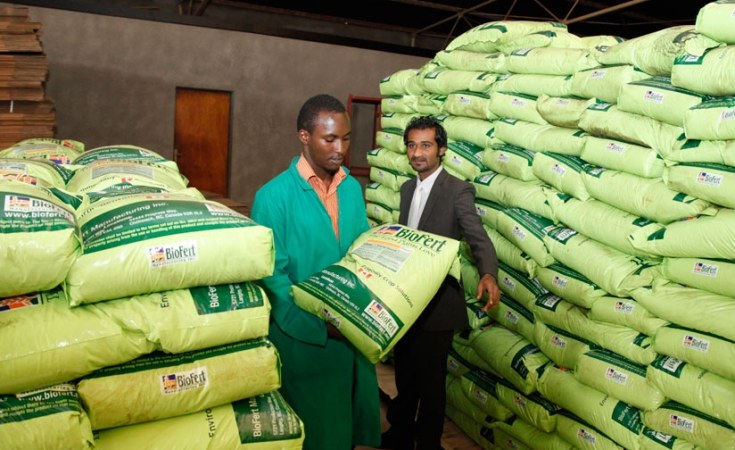FSG imports 45 000 tonnes of ammonium nitrate
Fertiliser, Seed, Grain (FSG), a company contracted to supply fertiliser for State assisted farming programmes, says it is expecting to start taking delivery of 45 000 tonnes of ammonium nitrate this week.
“We have four vessels in Beira port with 45 000 tonnes to discharge; these vessels have been delayed due to high port congestion and the recent closure of the port due to the cyclone,” FSG managing director Mr Steve Morland has said.
“We expect the first vessel to berth and start discharging and we will ramp up deliveries countrywide”.
Currently, ammonium nitrate is reportedly in short supply for State-assisted farming programmes and on the open market and where available is being sold in smaller packs.
Farmers fear that if the situation does not improve by month-end, this would compromise the early crop, particularly maize that now seriously needs the fertiliser in the face of incessant rains being received in most parts of the country.
While the early crop is doing reasonably well, prolonged rains have caused water-logging, and this could severely cut potential output if little or no fertiliser is applied on time on badly leached soil.
Mr Morland said FSG has so far delivered 40 000 tonnes of top dressing, adding more was expected soon.
“We have already delivered 40 000 tonnes of top dressing and are currently delivering approximately 1 000 tonnes per day,” he said.
Zimbabwe, whose economy is largely agro-based, has been importing significant quantities of fertiliser as local producers struggled to meet demand due to foreign currency shortages and other logistical challenges.
Over the past seven years, the country spent nearly US$662 million on fertiliser imports, a development Government intends to reverse as it implements the National Development Strategy Phase 1 running from 2021 to 2025.
Had the local industry been adequately supported, the country would have spent US$400 million or US$262 million less.
The five year economic strategy that replaces Transitional Stabilisation Programme (TSP), seeks to boost production of fertiliser.
According to the roadmap, Sable will ramp up annual production to 240 000 tonnes from the current installed capacity of 90 000 tonnes.
Presently, the company is operating at 33 percent of its capacity largely due to foreign currency shortages.
Chemplex will increase production to 100 000 tonnes over the same period, from the current capacity of 80 000 tonnes.
It is presently using 75 percent of its capacity. Demand for fertiliser in a normal farming season is around 600 000 tonnes, of which 70 percent goes towards Government sponsored farming programmes.
Over the years, Government has emerged as the major financier of agriculture in Zimbabwe, especially the production of cereals crops.-herald.cl.zw











